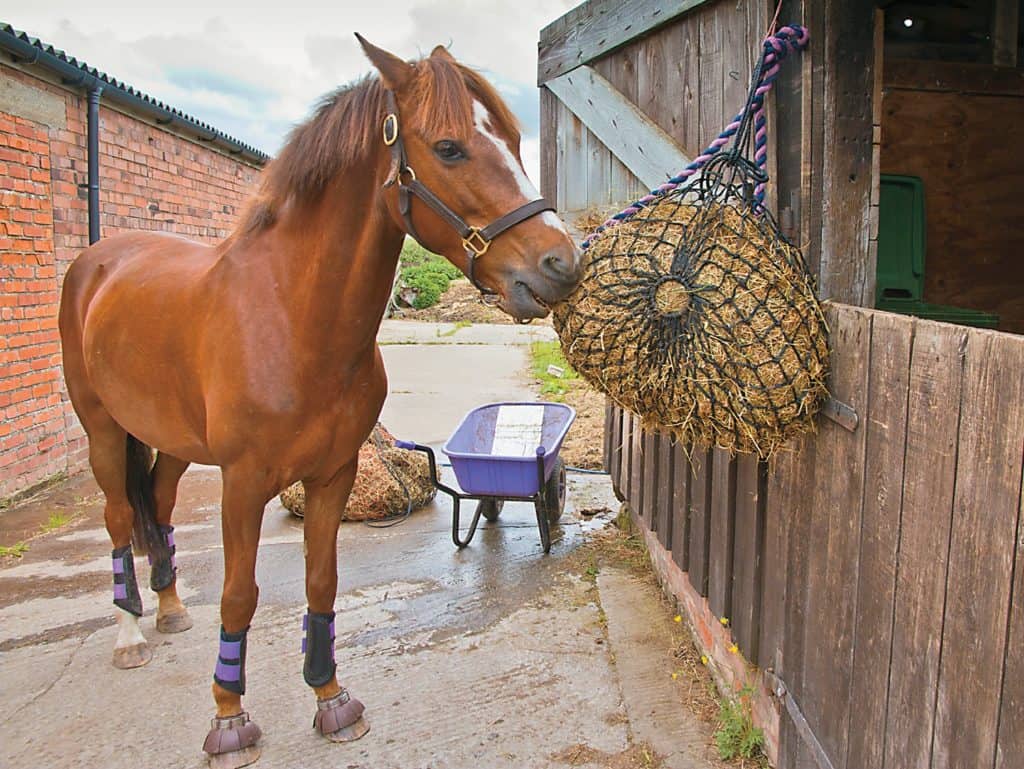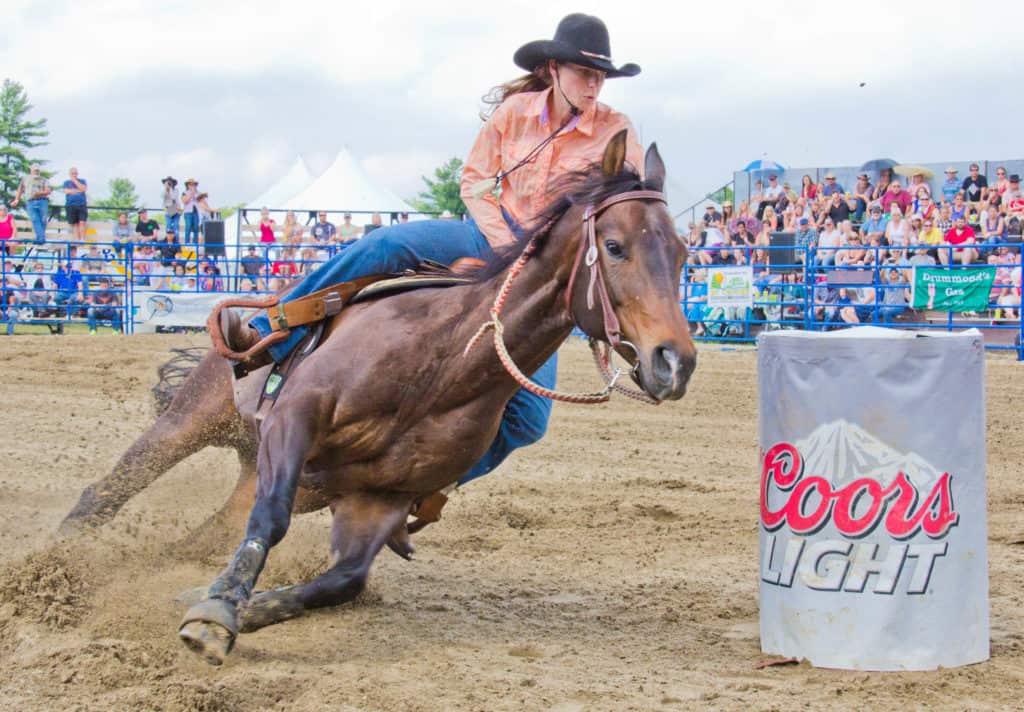
Hay for Horse Health
Horses with conditions such as muscle or metabolic disease might have special hay needs to stay healthy.

Horses with conditions such as muscle or metabolic disease might have special hay needs to stay healthy.

There’s no getting around it: Horses—especially those expected to perform at a high level—are risky purchases. But a thorough prepurchase exam can help give you confidence that you’re making the right investment for your scenario. Here’s what practitioners look for during prepurchase exams for upper-level sport horses.

Beginning Jan. 1, 2020, 2-year-olds would be prohibited from receiving furosemide within 24 hours of a race at coalition tracks. Beginning in 2021, the same prohibition would extend to all horses participating in any stakes race.

Experts share information about the steps needed to identify PSSM, how to distinguish between the types, and recommendations for managing affected horses.

When riding your horse in the woods or the wilderness, things can go wrong–and usually when least expected. Here are some possible predicaments you might face while out on the trail.

Researchers identified upper respiratory tract disorders, many of which aren’t common in other horse types, in 92% of the competition draft horses they examined.

Learn more about alfalfa and whether this leafy green legume is a good choice for your horse.

As much credit as we give horses for their metaphorical hearts, the actual blood-pumping organs generally get far less attention than other bodily systems. Take an in-depth look at the cardiovascular exam, common cardiac abnormalities, and treatment options.

Dr. Stephanie Valberg explains how five major advancements in veterinary technology have helped her and others learn more about and discover new equine muscle disorders.

Are breathing issues slowing your horse down? Here are some surgical and management options that might help.

Certain muscular disorders, such as HYPP and PSSM, are common in horses because breeders have selected for specific traits, including enhanced muscle mass and metabolism economy.

We must consider the breeds of our horses and ponies when planning their diets. Here’s a look at what we currently know about feeding major equid categories and where we’re heading.

Researchers determined that the diet and exercise recommendations veterinarians make for horses with PSSM1 can help improve, but likely won’t eliminate, clinical signs of PSSM2 in Warmbloods.

At this time there’s no evidence that EIPH affects barrel racing horses’ performance, but more research on the topic is needed, scientists say.

Scientists are continuing to uncover which genes are responsible for certain traits in horses.

A forage-only diet and transported before exercise could positively impact horses’ exercise performance, researchers found.
Stay on top of the most recent Horse Health news with
"*" indicates required fields